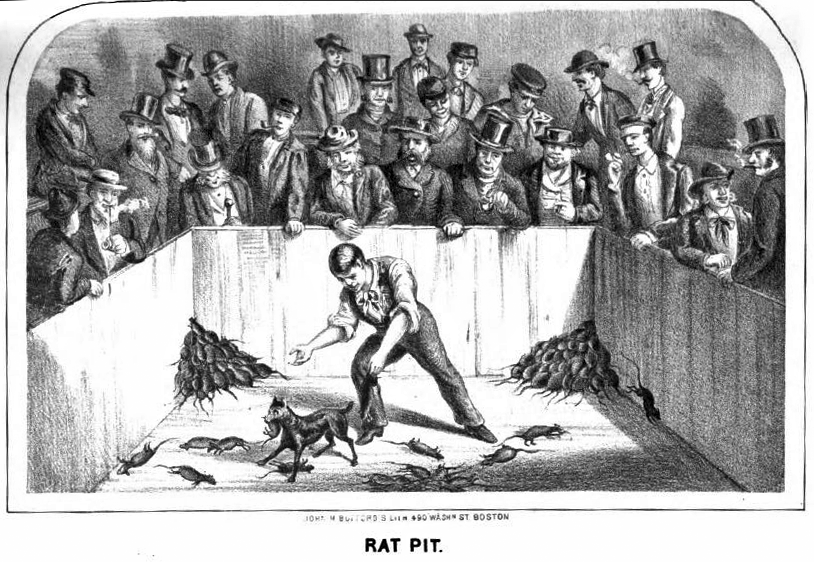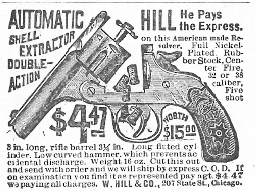

alias:
CHECK FORGER
The following is yet another case where a husband and wife disappear simultaneously, but in this instance the circumstances were particularly inexplicable, not to mention sinister.Up until the day their lives took a sudden dark turn, we know very little about 39-year-old James Robinson and his 25-year-old wife Nancy, other than that they had been married a relatively short time and were, as far
More...
Strange Company - 6/16/2025
Wouldn’t you love to have interviewed Lizzie’s physician, Dr. Nomus S. Paige from Taunton, the jail doctor, ? He found her to be of sane mind and we can now confirm that he had Lizzie moved to the Wright’s quarters while she was so ill after her arraignment with bronchitis, tonsilitis and a heavy cold. We learn that she was not returned to her cell as he did not wish a relapse so close to her trial. Dr. Paige was a Dartmouth man, class of 1861. I have yet to produce a photo of him but stay tuned! His house is still standing at 74 Winthrop St, corner of Walnut in Taunton. He was married twice, with 2 children by his second wife Elizabeth Honora “Nora” Colby and they had 2 children,Katherine and Russell who both married and had families. Many of the Paiges are buried in Mount Pleasant Cemetery in Taunton. Dr. Paige died in April of 1919- I bet he had plenty of stories to tell about his famous patient in 1893!! He was a popular Taunton doctor at Morton Hospital and had a distinguished career. Dr. Paige refuted the story that Lizzie was losing her mind being incarcerated at the jail, a story which was appearing in national newspapers just before the trial. Mt. Pleasant Cemetery, Taunton, courtesy of Find A Grave. 74 Winthrop St., corner of Walnut, home of Dr. Paige, courtesy of Google Maps Obituary for Dr. Paige, Boston Globe April 17, 1919
More...
Lizzie Borden: Warps and Wefts - 5/24/2025
The first announcement about the monstrous apartment “superblocks” came from the New York Times in July 1957. “Six-Block Project to Rise in Village,” the headline read. The description that followed sounded like a housing plan better suited for an outer borough, not the historic loveliness and charm of low-rise Greenwich Village. “Three buildings of 17 […]
More...
Ephemeral New York - 6/16/2025
Youth With Executioner by Nuremberg native Albrecht Dürer … although it’s dated to 1493, which was during a period of several years when Dürer worked abroad. November 13 [1617]. Burnt alive here a miller of Manberna, who however was lately … Continue reading
More...
Executed Today - 11/13/2020
Joseph Blair of Montclair, New Jersey, had a vicious argument with his coachman, John Armstrong, on June 26, 1879. Blair was angry that someone had seen his wagon in front of a beer saloon, and he went to the stable to confront Armstrong. Armstrong said it was none of Blair’s business where he went. As the argument grew belligerent, Armstrong told Blair that if he came into the stable again, he
More...
Murder By Gaslight - 6/14/2025
Soapy Smith STAR NotebookPage 20 - Original copy1884Courtesy of Geri Murphy(Click image to enlarge)
oapy Smith's early empire growth in Denver.Operating the prize package soap sell racket in 1884.
This is page 20, the continuation of page 19, and dated May 6 - May 29, 1884, as well as the continuation of pages 18-19, the beginning of Soapy Smith's criminal empire building in Denver, Colorado.&
More...
Soapy Smith's Soap Box - 6/1/2025
[Editor’s note: Guest writer, Peter Dickson, lives in West Sussex, England and has been working with microfilm copies of The Duncan Campbell Papers from the State Library of NSW, Sydney, Australia. The following are some of his analyses of what he has discovered from reading these papers. Dickson has contributed many transcriptions to the Jamaica […]
More...














